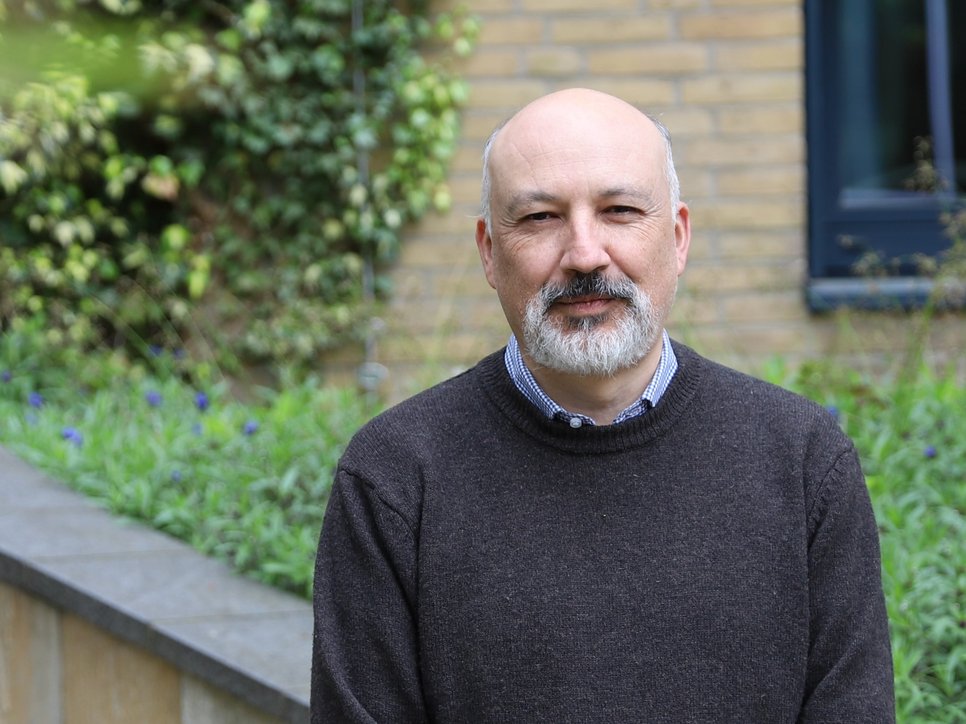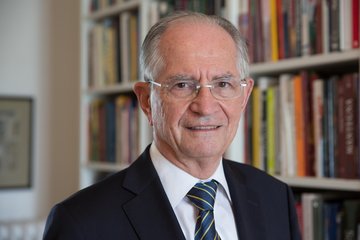A Navigator in the Global Discourse
In conversation with Daniel Bonilla Maldonado
Private Law Gazette 1/2023 – In most Western countries the rights of nature remain only a theoretical notion. Nonetheless, the idea of protecting our natural environment by endowing it with enforceable rights is gaining in popularity. But what exactly do we mean when we speak of nature? Daniel Bonilla Maldonado has focused his recent academic efforts on the various natural rights models that have been developed and advanced, especially in the Global South. Together with Institute director Ralf Michaels he authored a general report entitled “Global Legal Pluralism – Rights of Nature” for the General Congress of the International Academy of Comparative Law, in Asunción, Paraguay in 2022. In Hamburg, he has researched the genealogy of the concept of nature as a subject both in Western and non-Western legal and political traditions.

“The history of the term ‘nature’ is extremely multi-faceted in western cultures”, says the Colombian legal scholar. “But the idea of nature as an object, a conception founded in the Judeo-Christian tradition, modern science and liberal property has prevailed. This has led to Western legal systems regarding nature as something that people can freely dispose over.”
In light of the climate crisis, however, there are now voices around the world calling for a rethinking of the issue, arguing that nature should be recognized as an autonomous legal subject. The main impetus behind this movement comes from countries that until recently had little influence on international legal developments. In 2008, Ecuador was the first country in the world to bestow nature with enforceable rights in its constitution. Bolivia followed in 2010 and 2012 with the adoption of the Mother Earth law. And in 2017, the New Zealand government declared the Whanganui River a legal person. Indigenous communities played a central role in these constitutional and legislative efforts.
Just what path was taken in achieving these landmark legal rules and principes for the rights of nature? How were they negotiated? What legal concepts underlie them? These are questions that Daniel Bonilla has long considered. In his acclaimed book “Legal Barbarians, Identity, Modern Comparative Law and the Global South”, he shows that until the twenty-first century, comparative law dealt almost exclusively with a handful of European and North American states. According to his historical analysis, this view is based on the idea that countries of the Global South are deemed unsuitable for the production of original legal knowledge.
“Consequently, narratives were created that have led us to believe that law is a product of culture, and that European culture is richer and more complex than the cultures of the rest of the world. Accordingly, Western legal systems are considered the origin of the main legal families. The legal systems of Latin America, Africa and Asia, conversely, are understood to be merely variations of their 'mother legal systems'.”
In his academic work, Bonilla also draws on experiences that have shaped his personal career. After studying law and spending his first years as a professor in Colombia, he went to Yale, where he earned his doctorate, before subsequently taking up visiting professorships at various universities in the USA and Europe. He has always found it remarkable that the law schools of the Global North feature so few professors from the Global South, despite the Global South being so well-represented in other disciplines.
Although this divide remains prevalent, a turning point is emerging with issues like the rights of nature. Bonilla sees this as a significant development, both in political and epistemological terms. He sees it as new, for example, that a dialogue between the legal systems of the Global South and Global North has led to the development of innovative concepts on national and international levels. From an epistemological point of view, he finds it ground-breaking that the discussion regarding the rights of nature so prominently relies on indigenous ideas, conceptions which had not previously been regarded as legitimate sources of legal and political knowledge.
"The rights of nature are a hybrid cultural product," observes Bonilla. "By focusing on the relationship between humans and nature, they contradict the anthropocentric view associated with modern Western-style constitutionalism and environmental law. Subjective rights, by contrast, are a liberal legal concept. They stem from a Western way of thinking and are alien to the political and legal traditions of the indigenous peoples of Ecuador, Bolivia and New Zealand."
Daniel Bonilla is not only a dedicated researcher but also a passionate teacher. This was convincingly demonstrated to the Institute community at several lectures during his stay in Hamburg, in which Bonilla presented his current research. He also cultivates an interest in art and literature, which greatly enriches his publications and lectures. He has, for instance, juxtaposed examples of European Baroque painting with a work from the oeuvre of Andean Baroque in order to identify European and indigenous conceptions of man, nature and power. His concern: "I want to open channels of communication between law, literature and art in order to examine the rights of nature in a more precise and rich way, as well as to make them accessible to a wider public.”
The international and interdisciplinary scholar is currently focused on the challenges that arise when implementing the rights of nature in existing legal systems. He is optimistic: “We are embarking on an era of development that holds considerable room for interpretation but also the potential of fundamental conflicts. There will have to be transformative adjustments within individual legal systems. It remains to be seen how courts will deal with conflicting interests. But none of this should stop us from continuing the analysis and critique of the global discourse on rights of nature."
Prof. Dr. Daniel Bonilla Maldonado is full professor of law at the Universidad de los Andes in Bogotá, where he teaches constitutional law, legal theory and comparative law. After studying law at the Universidad de los Andes, he earned an LL.M. and a J.S.D. at Yale Law School. He has been honoured for his teaching activities on multiple occasions and has served as guest professor and guest lecturer at, among other institutions, the Science Po Law School in Paris, Fordham Law School in New York, the Universidade de Brasília, the Universidad de Buenos Aires and the Universidad Nacional de Colombia. From October 2022 until February 2023 he was a senior visiting fellow at the Max Planck Institute for Legal History and Legal Theory in Frankfurt. He was a senior visiting fellow at the Institute from March to June 2023.
Further Reading
Photo: © Max Planck Institute for Comparative and International Private Law / Johanna Detering












